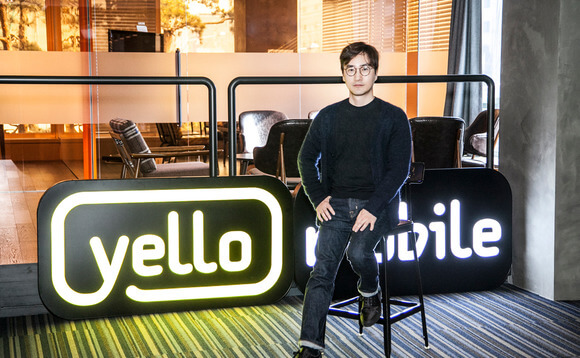In August 2012, the Seoul-based entrepreneur Lee Sang-hyuk launched Yello Mobile, which was set to become the South Korean ecosystem’s first unicorn. The startup initially grew phenomenally with its unique business strategy to acquire mobile technology-focused startups.
From the get-go, Yello Mobile was on a spending spree by acquiring 35 startups, and in the next six years after that, it had over 94 startups under its umbrella. Just as it grew meteorically, however, the downfall too was rough and hard. In 2019, Sang-hyuk Lee, the then CEO, resigned on charges of embezzlement, and Yello Mobile’s meltdown ensued.
The beginning: Acquisition, Independence and Revenue Sharing
Yello Mobile’s launch concept was in forming a ‘startup alliance’ viz. a conglomerated-umbrella company under which startups would do business. Yello Mobile’s inherent strategy would acquire a certain percentage of a startup’s equity while correspondingly giving them a stake in Yello Mobile’s. Yellow Mobile also promised founders autonomy and independence to operate their startups. In this seemingly give-and-take strategy, Yello Mobile acquired more than 94 mobile-tech related startups.
It’s business model was hailed as a “new and innovative venture model” by global startup pundits. Target startups were in mobile marketing verticals, mobile travel, and digital media. The vision to explore the M-Commerce worked in Yello Mobile’s favor at that time, given South Korea’s mobile usage was surging. More than 75% of the population was now using smartphones, and internet infrastructure was vastly improving.
Given Yello Mobile’s purportedly cutting-edge business model of startup conglomeration, a game-changing investment from DSC Investment worth over $76m and a first among “equals” status amongst the Korean startup ecosystem, Yello Mobile could acquire any startup at will.
Yello Mobile, indeed, chose startups that had some market traction but needed support for scaling. It specifically grew them through financing, HR, marketing, etc. while benefiting from alliance startup members. These factors helped startups grow rapidly within the Yello Mobile umbrella.
Take, for example, Coocha, an app that gathers information about e-commerce businesses, integrated with the Yello Mobile conglomerate in May 2013. It exponentially grew its users and revenue in record time, so much so that Coocha income rose from $160,000 to $810,000 within two years.
The expansion, growth, and greed
Yello Mobile’s business concept of stock-swap acquisitions was globally acclaimed among startups and investors. As Yello Mobile exponentially grew its startups, so too did investments and revenue. While Yello Mobile not only successfully raised over $187 million from such luminaries as Macquarie, Formation 8, and SBI Group, to name a few, it also had reputed investors like Gideon Yu and Brian Koo (eldest son of LS Nikko-Copper chairman Koo Cha-hong).
Yello Mobile’s revenue increased from 68 million won ($60,463) in 2012 to 527 billion won or $468 million in 2017.
By December 2014, having become Korea’s first ‘unicorn’ with a corporate valuation of 1 trillion won gave Yello Mobile validation to expand into business offerings in five key operations categories: SMATO (Shopping, Media, Advertising, Travel, and Online-to-Offline) businesses. Among those were promising startups like K-Style, Michyeora, and PriceArea for shopping; under media, it had Pikicast, Jihachul, Alarmmon, and 1KM; the cloud-based related travel management service Zari and other travel services like Tour Baksa and Hannintel and the second-largest mobile ad network in Korea, Cauly which is part of the Korean Future Stream Networks.
In 2014-2015, praise for Yello Mobile’s had reached its pinnacle when its conglomerated business model was touted by TechCrunch and Korea’s startup media as one of “Asia’s most unique and exciting.”
Lee Sang-hyuk had seemingly realized his dream of becoming a globally renown entrepreneur. His ascendancy to startup “stardom” overshadowed earlier setbacks in his career with Daum Communications, where he disputed with Daum’s organization and integration. He wanted to develop a model where startups could thrive independently without corporate pressures. In 2016, Forbes valued Yello Mobile at $4 billion and ranked the startup’s CEO, Lee Sang-hyuk, at No. 34 on its list of Korean billionaires.

Just when Yello Mobile could apparently do no wrong, Yello Mobile’s business model’s vulnerabilities were ascertained in 2017. Yello Mobile’s discovered weaknesses began paradoxically when confirming its unicorn status by applying for an IPO. Samsung Securities and Korea Investment & Securities strongly advised Yello Mobile rescinding its application knowing KOSDAQ financial regulators would reject their application after posting losses of 142.4 billion won in the fiscal year 2016.
Yello Mobile correspondingly canceled its IPO and instead concentrated on listing its affiliates like the Future Stream Networks. There were also communication and collaboration problems between the affiliate startups and the flagship. Startups were not happy with the way Yello Mobile core team was distributing funding to affiliates. To resolve losses, Yello Mobil began financing its business by issuing convertible bonds, which were bought by Formation 8 and two other VCs from Japan and the USA.
To mitigate the IPO fall out, Yello Mobile simultaneously attempted re-strategizing its market presence by expanding into blockchain with a new brand identity called Dayli Financial Group. Yello Mobiles’ last-ditch effort to entering the digital currency trading market with Dayli failed given the 2018 cryptocurrency crash precluding any hope for a Yello Mobile recovery.
The Downfall
Beginning in 2018, the Yello Mobile unraveling commenced when Coinone sued for 27 billion won in loan redemptions. Suits were likewise filed by DS Asset Management and AlpenRoute Asset Management: DS Asset Management and AlpenRoute Asset Management sued for repayments of 10 and 16.9 billion won, respectively.
Yello Mobile’s profitability model, meanwhile, was also widely questioned when creditors and media alike accused Lee Sang-hyuk of delinquency and excessive borrowing from partners and affiliates.
To make matters worse, lawsuits were filed against Lee for embezzlement, which in turn led to Yello Mobile’s investment-grade downturn.
Ponzi schemed transactions, and overly zealous acquisitions led Yello Mobile investors and partners to lose faith in the startup. In 2014, Yello Mobile partnered with startup accelerator Primer to buy network services firm JTnet; they used JTnet’s shares as collateral to pay off loans.
Yello Mobile for all intents and purposes was a “dead” unicorn in 2018, and eventually, in 2019, Lee had to step down upon pressure from the board and creditors.
The only silver lining vis-à-vis the Yello Mobile saga is since it did not go public, there was not much direct collateral damage to the general public, save for misinterpreting Yello Mobile’s relevance.
Yello Mobile’s creditors and partners have presently, nevertheless, incurred significant losses, while its affiliates are still operating, and some have even listed.
The Yello Mobile’s board’s revival of the dead unicorn is essentially in vain given the current economic environment. What will ensue are probably its subsidiaries being sold or acquired to recompense Yello Mobile’s creditors–a Daewooesque sell-off.
This is analogous to an all too familiar ending of an overhyped and overvalued startup e.g., Wework, whose valuation is asymmetrical to profitability potential and business fundamentals.
(Inputs from Koreatechdesk.com editorial team)






